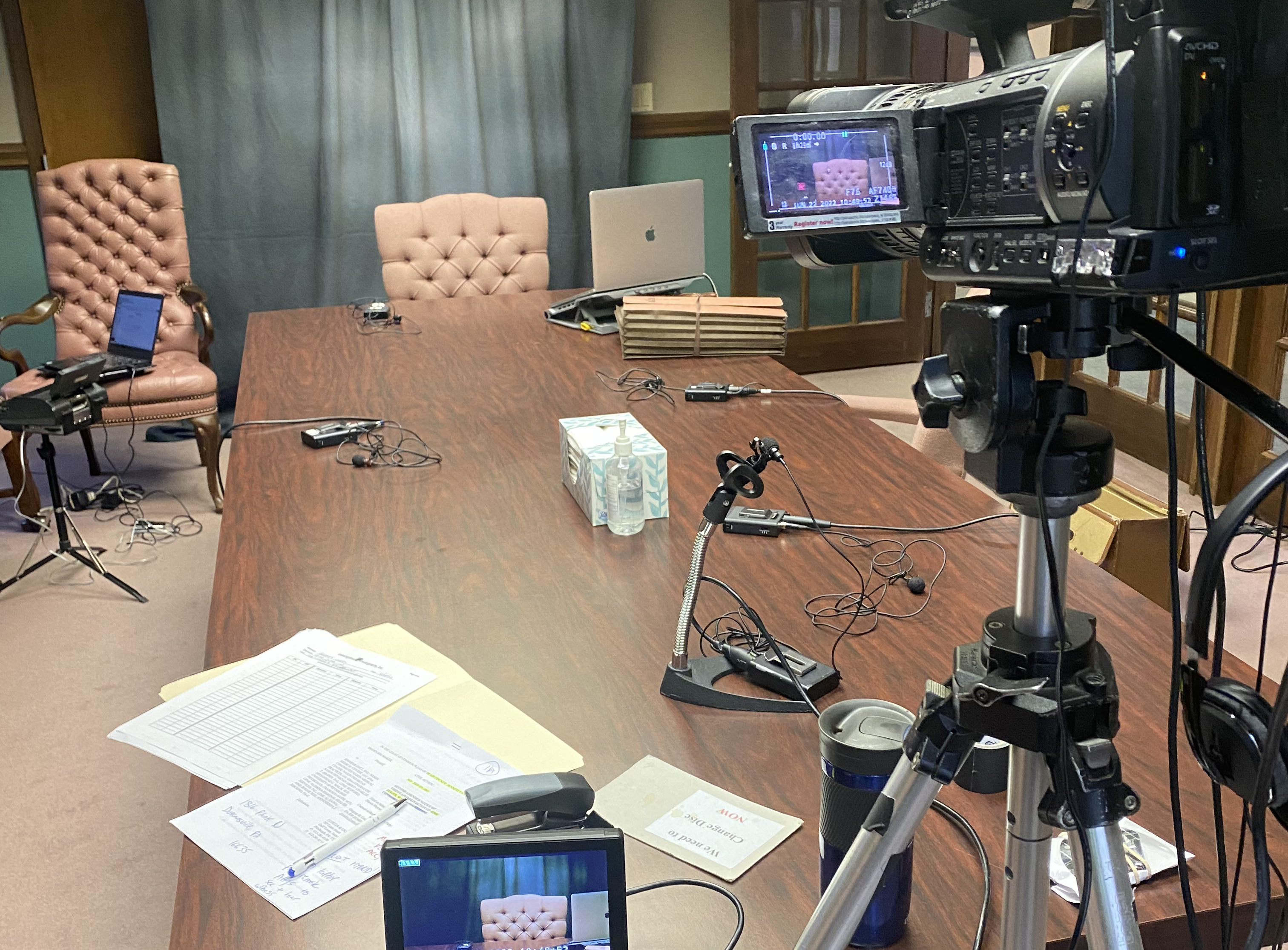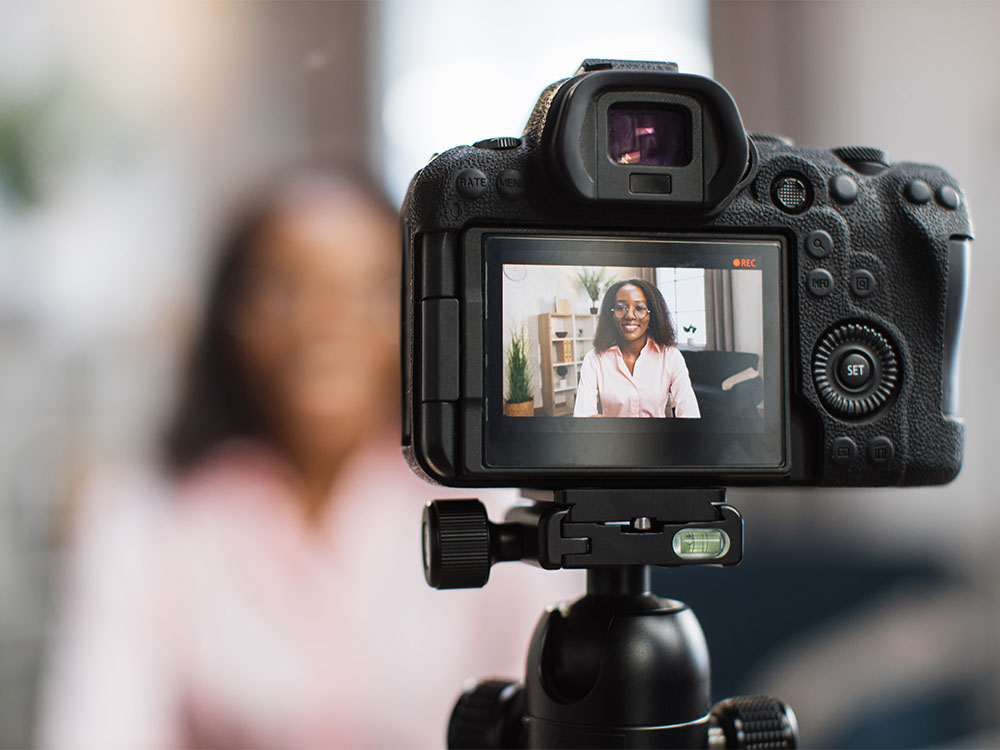The Importance of Legal Video Depositions in Modern Legal Services: What You Must Know
Legal video depositions have ended up being important in today's legal landscape. They offer a multidimensional view of witness testimonies that traditional records simply can not match. By capturing both non-verbal and verbal interaction, these depositions enhance the overall understanding of a witness's trustworthiness. The effectiveness of video depositions pivots on various elements, consisting of conformity with legal requirements and ideal methods. Exploring these elements exposes their true significance in modern lawful solutions
What Are Lawful Video Depositions?
Legal video depositions function as a crucial tool in the litigation procedure. They entail taping witness testimonies in a video clip format, catching both verbal and non-verbal communication. This approach allows attorneys to record the disposition, expressions, and responses of witnesses, supplying a richer context for the testament. Usually performed in a regulated environment, these depositions are led by lawyers that ask questions while a stenotype reporter records the dialogue. The resulting video can be essential for test preparation, as it allows attorneys to assess the trustworthiness of witnesses and fine-tune their approaches. In addition, lawful video depositions can be utilized in different legal contexts, ranging from civil disagreements to criminal instances. The auditory and visual aspects of video depositions improve the discussion of evidence, making it a vital part in the modern-day legal landscape. In general, they add considerably to the efficiency and effectiveness of lawful proceedings.

Benefits of Video Clip Depositions Over Typical Approaches
Video clip depositions provide many advantages compared to conventional methods of taking witness statements. One substantial advantage is the ability to record both aesthetic and audio components, giving an extra extensive document of the witness's declarations. This double format enhances quality and allows attorneys to reference particular nuances during test preparation. Furthermore, video clip depositions help with remote engagement, making it much easier for witnesses that might be not available for in-person looks because of geographical constraints or health and wellness issues.Moreover, video depositions can quicken the overall deposition procedure, lowering the time and costs related to travel and logistics. They likewise enhance accessibility, as videotaped depositions can be quickly shared among legal groups and referenced any time. This comfort adds to better situation monitoring and preparation. On the whole, video depositions stand for a modern-day, efficient strategy to gathering witness statements, aligning with the developing requirements of the lawful occupation.
The Duty of Body Language and Tone in Testimonies

In lawful video depositions, body movement and tone play important functions in communicating a witness's reliability and reliability. Nonverbal hints can supply insights right into a witness's emotion, influencing exactly how their testimony is regarded. Comprehending the impact of these components is essential for jurors and lawyers alike when examining the reliability of a testament.
Nonverbal Communication Insights
While spoken interaction is commonly emphasized in legal testaments, nonverbal cues such as body language and tone play a necessary duty in conveying reputation and feeling. Viewers of depositions may note that a witness's posture, gestures, and facial expressions can substantially affect assumptions of integrity. Regular eye call may signal confidence, while avoiding look might recommend dishonesty or discomfort. The tone of voice-- its pitch, speed, and volume-- can impart sensations of genuineness or uncertainty. Lawful specialists should be in harmony with these nonverbal signals, as they frequently offer essential context that complements spoken words. Comprehending these subtleties can boost the efficiency of depositions and influence the end result of legal procedures.
Emotional Tone Impact
The emotional tone shared throughout legal testaments greatly impacts just how a witness is regarded. Body movement, vocal inflections, and faces play crucial roles fit the narrative of a testimony. A witness displaying confidence via stable eye contact and a calm tone can instill a feeling of integrity and engagement. Conversely, signs of stress and anxiety, such as fidgeting or a shaky voice, might lead to apprehension regarding their account. The nuances of psychological expression can influence the interpretation of realities, making it necessary for legal professionals to acknowledge these cues. In video clip depositions, the auditory and aesthetic components integrate, highlighting the importance of emotional tone in conveying genuineness and reliability within the legal process.
Reliability and Dependability
A crucial consider developing reputation and reliability throughout statements depends on the witness's body movement and intonation. Viewers commonly rely on non-verbal signs-- such as eye get in touch with, position, and motions-- to assess a witness's genuineness. A witness who preserves eye get in touch with and shows open body language may be perceived as even more reliable and truthful than one who prevents eye call or shows up shut off. Furthermore, intonation plays a necessary function; a constant, tranquil tone can enhance the reliability of the statement, while changes in pitch or quantity might increase questions. Eventually, the combination of body language and vocal tone greatly affects exactly how a witness's declarations are gotten and interpreted in a lawful context.
Finest Practices for Conducting Video Clip Depositions
Carrying out video clip depositions needs cautious planning and execution to guarantee a clear and efficient discussion of statement. It is important to select a quiet, well-lit place to minimize diversions and safe and secure ideal video clip high quality. The tools should be evaluated beforehand, consisting of video cameras, microphones, and lights, to avoid technological issues during the deposition.Next, events involved should assess the format and procedures ahead of time, ensuring that every person understands their roles. The deponent must be oriented on the process, including just how to react clearly and concisely.Additionally, preserving a specialist disposition throughout the session is necessary. This consists of avoiding speaking over one an additional and validating that all questions are directed properly. Lastly, it is essential to record the deposition in a style that permits simple playback and evaluation, preserving the integrity of the testimony for future use.
Legal Considerations and Compliance Issues
How do lawful factors to consider and conformity concerns influence the effectiveness of video clip depositions? Lawyers need to browse a complicated landscape of guidelines, ensuring that video depositions stick to administrative policies and requirements. Compliance with laws concerning personal privacy, authorization, and videotaping techniques is vital. Acquiring specific approval from all celebrations involved is essential to prevent lawful repercussions.Additionally, the admissibility of video evidence in court can pivot on compliance with procedural needs. Making sure that the equipment made use of satisfies technical standards is additionally crucial, as inadequate top quality can threaten the deposition's reliability.Moreover, lawyers have to recognize any details state legislations that control video depositions, as these can differ considerably. Failure to deal with these factors to consider can not only threaten the stability of the deposition yet likewise influence the general instance technique, inevitably impacting the client's lawful outcomes.
Exactly How Video Clip Depositions Effect Court Perception
While video clip depositions can function as powerful devices in legal procedures, their impact on jury understanding is significant. The auditory and aesthetic aspects of video recordings give jurors with an extra complete understanding of witness attitude, integrity, and psychological reactions. This multimedia technique can boost the jurors' capability to analyze the dependability of testimony contrasted to standard text-based transcripts.Moreover, video clip depositions permit jurors to observe body language, tone of voice, and faces, every one of which can impact their analysis of the witness's statements. The visibility of a witness on screen can humanize them, cultivating empathy and connection, which might sway jurors' viewpoints. Alternatively, a witness that appears unreliable or evasive on video may cause negative assumptions that influence a jury's choice. Inevitably, the dynamic nature of video depositions plays an important duty in forming how jurors analyze proof and reach their verdicts.
The Future of Video Depositions in Legal Practice
As developments in innovation proceed to improve the lawful landscape, the future of video clip depositions is positioned for substantial advancement. Technologies such as artificial knowledge, digital fact, and boosted video clip conferencing tools are expected to streamline the deposition process and boost access. Lawful specialists might use AI-driven analytics to evaluate witness trustworthiness and case strength more effectively.Moreover, the assimilation of online truth this article could permit courts to experience immersive simulations of depositions, offering deeper context and understanding. In addition, the fad toward remote depositions is likely to linger, using greater adaptability for customers and lawyers alike.As remote work comes to be increasingly normalized, video clip depositions will likely come to be conventional practice, lowering expenses and time constraints connected with standard methods. On the whole, these technical advancements assure to enhance the performance, effectiveness, and access of video depositions in lawful method, inevitably transforming just how legal specialists get ready for test.
Often Asked Inquiries
Just How Much Do Lawful Video Depositions Normally Cost?

Can Video Clip Depositions Be Used in Any Type Of Sort Of Situation?
Video depositions can be used in numerous types of situations, including civil, criminal, and family members law. Their versatility permits attorneys to present witness statements properly, adjusting to the specific requirements of various lawful situations.
What Devices Is Needed for a Video Clip Deposition?
To perform a video clip deposition, important equipment includes a top quality cam, microphone, lights, and a reliable recording device. Furthermore, a computer with modifying software program might read what he said be essential for post-production and formatting the last video clip.
The length of time Does a Typical Video Clip Deposition Last?
A common video clip deposition lasts between 2 to four hours, relying on the intricacy of the case and the variety of questions posed. Prolonged sessions might read this post here take place, yet breaks are generally included for individual convenience.

Are Video Clip Depositions Admissible in Court?
Video depositions are typically acceptable in court, offered they comply with legal standards and rules of proof. Their usage improves clearness and preserves witness testimony, aiding in the judicial procedure throughout hearings and trials. Lawful video clip depositions have actually come to be necessary in today's legal landscape. Additionally, legal video clip depositions can be used in different lawful contexts, ranging from civil disagreements to criminal instances. In addition, video depositions facilitate remote engagement, making it much easier for witnesses who might be not available for in-person appearances due to geographical restraints or health and wellness issues.Moreover, video depositions can speed up the general deposition process, reducing the time and prices associated with traveling and logistics. Making sure that the tools utilized meets technological standards is additionally crucial, as poor top quality can undermine the deposition's reliability.Moreover, attorneys need to be aware of any kind of particular state regulations that regulate video clip depositions, as these can vary substantially. Furthermore, the fad toward remote depositions is most likely to persist, using greater versatility for attorneys and clients alike.As remote work comes to be progressively stabilized, video depositions will likely end up being standard method, lowering costs and time restraints associated with conventional approaches.